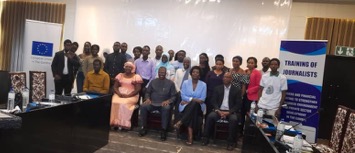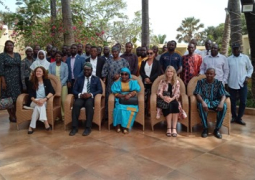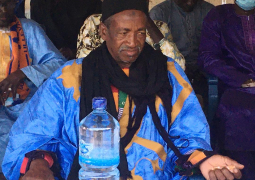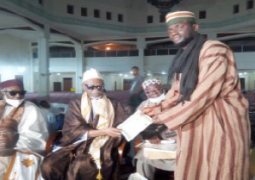
The training, was held at a local hotel in Senegambia and was organized by the (MoTIE) in partnership with the State Resilience Contract 3, and funded by the European Union.
The training, officials said, is aimed at equipping journalists with the necessary skills and knowledge to effectively report on business-related topics affecting private sector development in The Gambia.
Participants were exposed to various topics ranging from the overview of the Gambia’s economy and business sector, understanding key business and financial terms, legal and ethical issues in business reporting, use of data in business reporting (data visualisation), fact checking in business reporting, business and financial journalism in practice among others.
Speaking at the convergence, the country’s Minister for Trade, Baboucarr Ousmaila Joof, underscored the significance of the forum.
He recalled that during the National Business Council meeting which was held in February this year, the president made five commitments in which he advised the ministry to work towards achieving. That, he added, would help drive both the business environment and private sector development agenda.
Minister Joof said: “These will go a long way towards easing procedures for starting and running a business, reviewing, reducing and rationalizing business operating costs such as taxes, levies, and charges, improving access to business finance, identifying and accessing land for investment, and investing in infrastructure development particularly on trade facilitation infrastructure.”
“These are landmark policy interventions and commitments which if widely communicated to the population, government ministries and agencies shall be constantly reminded and greater attention paid to them.”
To achieve these objectives, he went on, the “government recognises the importance of a well-informed public that is equipped with accurate information about economic developments and trends.”
Ms Lumana Kamashi, the EU Development Cooperation/International Aid officer, said: “EU’s interest and support for the capacity building was based on the EU’s appreciation and recognition of the significance of the role of press in promoting Gambia’s journey towards economic development.”
Informed citizens, she added, are more likely to participate in the democratic process, advocate for their rights, and contribute to national development, saying: “When people understand their economic environment and the impact of policies on their lives, they are more likely to engage in meaningful dialogue and actions.”
“Economic development is not just about financial growth, but it is also about building cohesive societies where everyone has the opportunity to thrive,” she claimed.
She assured of the EU's continued support to strengthen the press and ensure that it remains a beacon of truth, accountability and progress for the Gambia.




